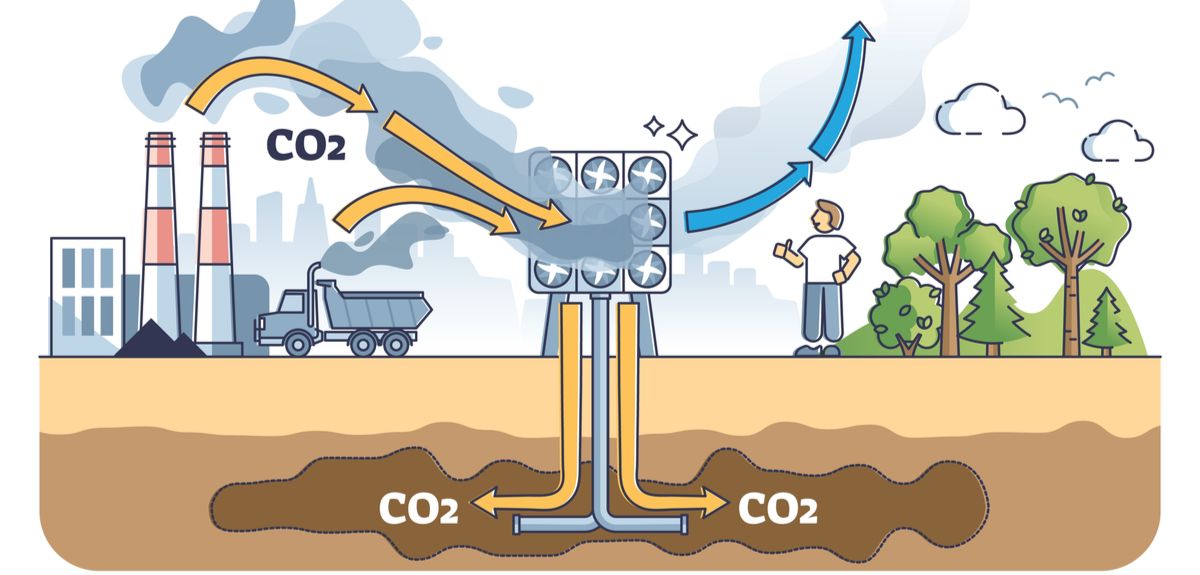
Affordable policy which could stop fossil fuels causing global warming - report
Imagine a single policy, imposed on one industry, which would, if enforced consistently, stop fossil fuels causing global warming within a generation.
The Carbon Takeback Obligation could do just that. It requires fossil fuel extractors and importers to dispose of safely and permanently a rising fraction of the CO2 they generate, with that fraction rising to 100% by the year of net-zero. Critically, this would include carbon dioxide generated by the products they sell.
A new study published today in the international energy journal Joule, explores the economic implications of imposing a carbon takeback obligation on the global fossil fuel industry, and shows it provides an affordable and low-risk route to net-zero emissions, particularly if complemented by conventional measures to reduce near-term fossil fuel demand.
According to the study, 'In the absence of immediate, rapid, and unprecedented reduction in global demand for carbon-intensive energy and products, the capture and permanent storage of billions of tons of carbon dioxide (CO2) annually will be needed before mid-century to meet Paris Agreement goals...
'When combined with measures to reduce CO2 production in the near-term, a CTBO could deliver a viable pathway to achieving net-zero emissions consistent with 1.5°C by mid-century.'
We show that the cost...of a Carbon Takeback Obligation, even if entirely passed on to fossil fuel consumers, is no higher than the cost of mitigation
Stuart Jenkins
Oxford researcher Stuart Jenkins, lead author of the study, explains, ‘Despite the perceived high cost of carbon dioxide capture and storage, we show that the cost to the world economy of a Carbon Takeback Obligation, even if entirely passed on to fossil fuel consumers, is no higher than the cost of mitigation in conventional scenarios meeting similar goals driven by a global carbon price.’
Professor Stuart Haszeldine of the University of Edinburgh, a report co-author, says, ‘Investment in carbon dioxide capture and geological storage has, to date, been dependent on state subsidies, and consistently far below what is required to meet Paris climate goals. Carbon Takeback provides the fossil fuel industry itself with the strongest possible incentive to make amends: survival.’
Carbon Takeback has consistently been dismissed by the climate policy establishment as much more expensive and risky than driving down consumption...But these options are hardly risk-free
Professor Myles Allen
Oxford’s Professor Myles Allen, another co-author, adds, ‘Carbon Takeback has consistently been dismissed by the climate policy establishment as much more expensive and risky than the alternative of driving down consumption by changing consumer behaviour or through a global carbon price. But these options are hardly risk-free. Getting to net-zero means carbon prices rising to $1000 per tonne of CO2 by 2050: 100 times the hike that brought out the gilets jaunes.’
The paper: Upstream decarbonisation through a Carbon Takeback Obligation: an affordable backstop climate policy is the Climate & Energy highlight of this week’s issue of the journal Joule. It will be available on https://www.cell.com/joule/fulltext/S2542-4351(21)00489-X
Carbon Takeback provides the fossil fuel industry itself with the strongest possible incentive to make amends: survival
Professor Stuart Haszeldine
This research was supported by the Oxford Net Zero initiative of the University of Oxford’s Strategic Research Fund and the NEGEM project of the European Union’s Horizon 2020 Research and Innovation Programme (GA 869192), with additional support from UK Research and Innovation and the Oxford Martin School.
True Planet: Oxford research for a changing world
The world around us is changing, and Oxford researchers are at the forefront of trying to understand better the reasons for global temperature and sea level increases, extreme weather events, plastic waste proliferation and threats to biodiversity.
Our researchers are working with partners in industry, government, the third sector and at other universities to address these challenges and to propose innovative approaches and solutions. Find out more about our True Planet campaign.
 Expert Comment: Church-to-mosque conversions grab headlines, but is funding the real crisis?
Expert Comment: Church-to-mosque conversions grab headlines, but is funding the real crisis?
 Expert Comment: Four years of full-scale war and Ukrainian resistance continues
Expert Comment: Four years of full-scale war and Ukrainian resistance continues
 Oxford and Liverpool join forces to tackle global challenges
Oxford and Liverpool join forces to tackle global challenges